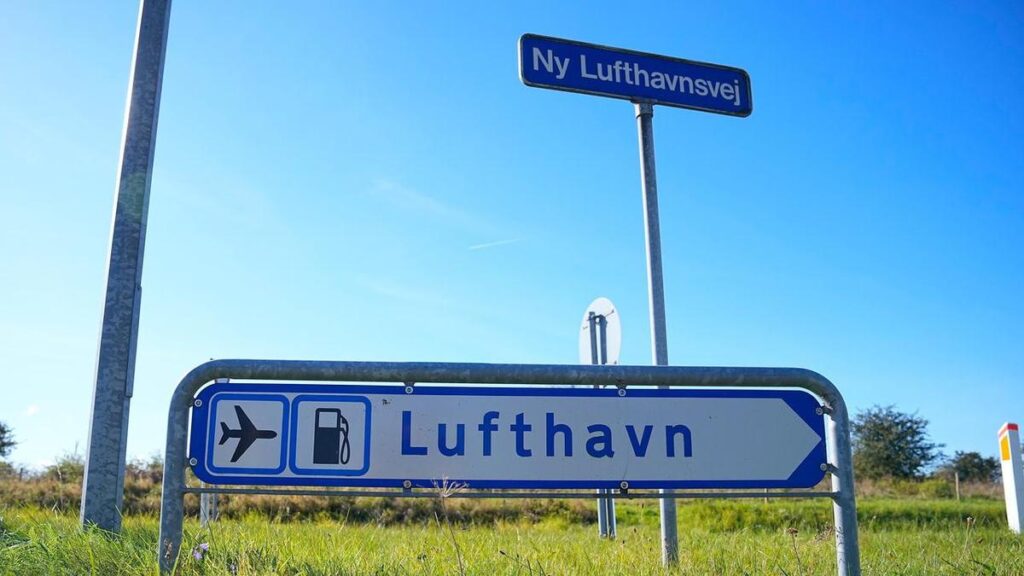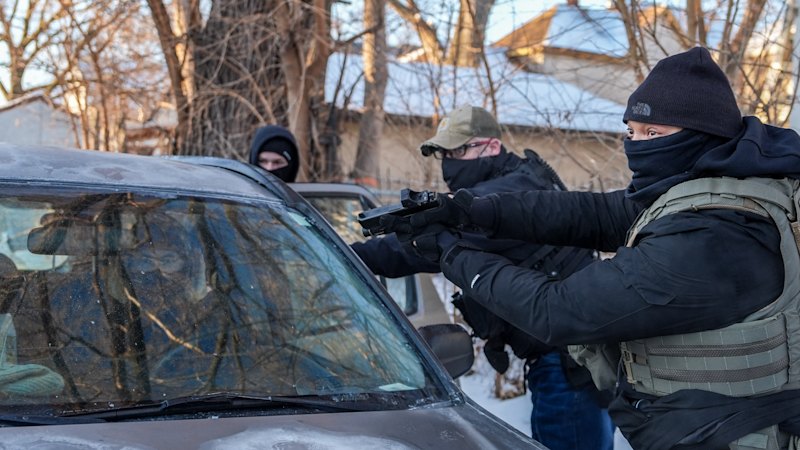
URGENT UPDATE: Denmark has confirmed that recent drone incursions disrupting two major airports are linked to unidentified “state actors,” according to Latvian Foreign Minister Baiba Braze. This alarming development raises serious questions about airspace security in Europe amid escalating tensions with Russia.
In a statement made during the UN General Assembly in New York, Braze emphasized the need for NATO allies to urgently enhance their anti-drone capabilities. “We all have to invest in counter-drone capability,” she asserted, underlining the growing concern among Western nations.
The drone incursions, which occurred overnight, forced Aalborg Airport to shut down for three hours and Billund Airport, Denmark’s second-largest, to close for one hour. Both facilities reopened early Thursday morning, but the incidents have raised serious alarms about the vulnerability of European airspace.
Details from Danish police indicate that drones were spotted near multiple airports, including Esbjerg and Sonderborg, as well as the military base at Skrydstrup, which houses Denmark’s F-16 and F-35 fighter jets. A military facility in Holstebro was also affected.
Troels Lund Poulsen, Denmark’s Defence Minister, described the drone activity as “hybrid attacks aimed at spreading fear.” He did not disclose the identities of the perpetrators but confirmed that these incursions are part of a worrying trend noted by European officials, seen as a potential pattern of Russian disruption.
“It certainly does not look like a coincidence. It looks systematic. This is what I would define as a hybrid attack,”
Poulsen stated, highlighting the urgent need for Denmark to bolster its defenses.
Latvia’s Foreign Minister reiterated the call for enhanced security measures, stating, “The Danish government said it’s a state activity that operates it.” This statement underscores the seriousness of the situation as NATO allies are now on high alert.
Incidents like these come after Denmark’s recent military budget increase aimed at addressing critical security gaps. Just last week, Denmark announced plans to acquire long-range precision weapons, further intensifying discussions about regional security. The country’s decision to host Ukrainian missile fuel production near Skrydstrup has also attracted scrutiny from Russia.
Denmark’s police have ramped up their presence at the affected airports and other critical infrastructure. Despite the disruptions, authorities decided against taking down any drones for safety reasons, which raises concerns about the current capacity to manage such threats effectively.
This incident is not isolated. Earlier this month, Poland downed suspected Russian drones in its airspace, highlighting a broader pattern of drone-related security issues facing NATO countries.
As the situation develops, all eyes will be on Denmark and its next steps, especially regarding whether the country will invoke NATO’s Article 4, which allows members to request consultations over security concerns. Poland and Estonia have already utilized this provision in response to recent incursions.
The implications of these drone incursions are significant, not just for Denmark, but for the collective security of NATO as tensions with Russia continue to rise. The need for robust countermeasures and immediate action is clear as Europe grapples with an evolving threat landscape.






